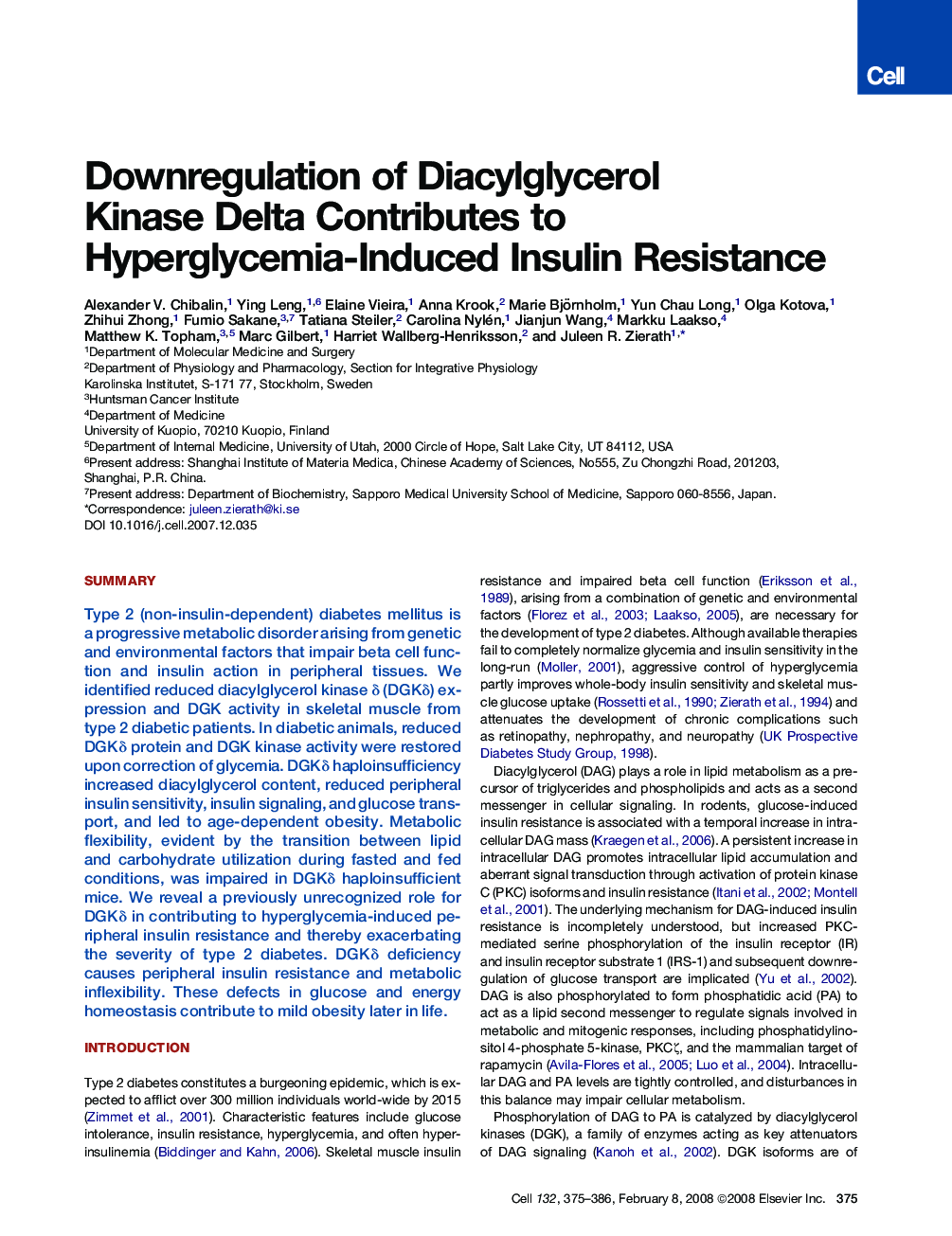| Article ID | Journal | Published Year | Pages | File Type |
|---|---|---|---|---|
| 2037807 | Cell | 2008 | 12 Pages |
SummaryType 2 (non-insulin-dependent) diabetes mellitus is a progressive metabolic disorder arising from genetic and environmental factors that impair beta cell function and insulin action in peripheral tissues. We identified reduced diacylglycerol kinase δ (DGKδ) expression and DGK activity in skeletal muscle from type 2 diabetic patients. In diabetic animals, reduced DGKδ protein and DGK kinase activity were restored upon correction of glycemia. DGKδ haploinsufficiency increased diacylglycerol content, reduced peripheral insulin sensitivity, insulin signaling, and glucose transport, and led to age-dependent obesity. Metabolic flexibility, evident by the transition between lipid and carbohydrate utilization during fasted and fed conditions, was impaired in DGKδ haploinsufficient mice. We reveal a previously unrecognized role for DGKδ in contributing to hyperglycemia-induced peripheral insulin resistance and thereby exacerbating the severity of type 2 diabetes. DGKδ deficiency causes peripheral insulin resistance and metabolic inflexibility. These defects in glucose and energy homeostasis contribute to mild obesity later in life.
